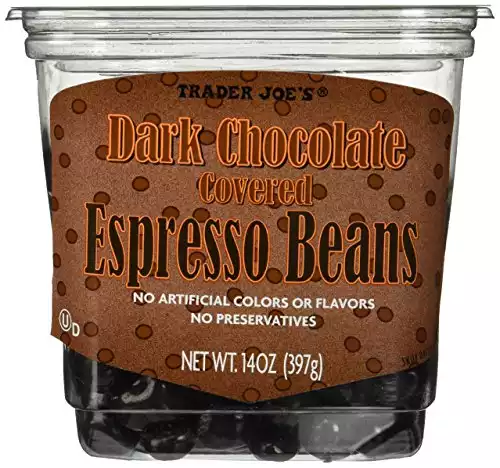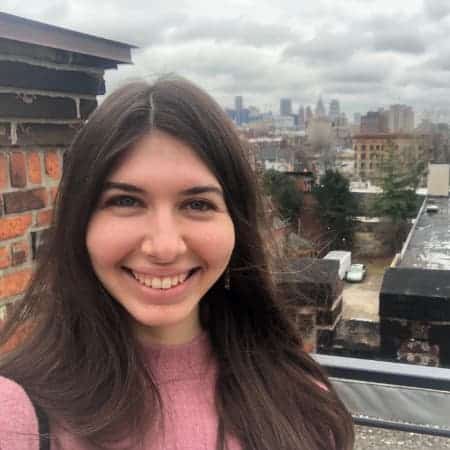Can You Eat Coffee Beans?
Maybe you were just curious because they smell so good.
Maybe you saw a bag for sale at the store and are now intrigued. Admit it. One way or another, you’ve totally wondered, can you eat coffee beans?
Eating coffee beans may sound strange — I mean, most of us don’t eat coffee grounds the way we eat chocolate. Still, it is possible.
If you’re a coffee lover, you might be surprised at how delicious — and beneficial — eating the beans by themselves can be.
So here’s the skinny on eating coffee beans. You’re welcome.
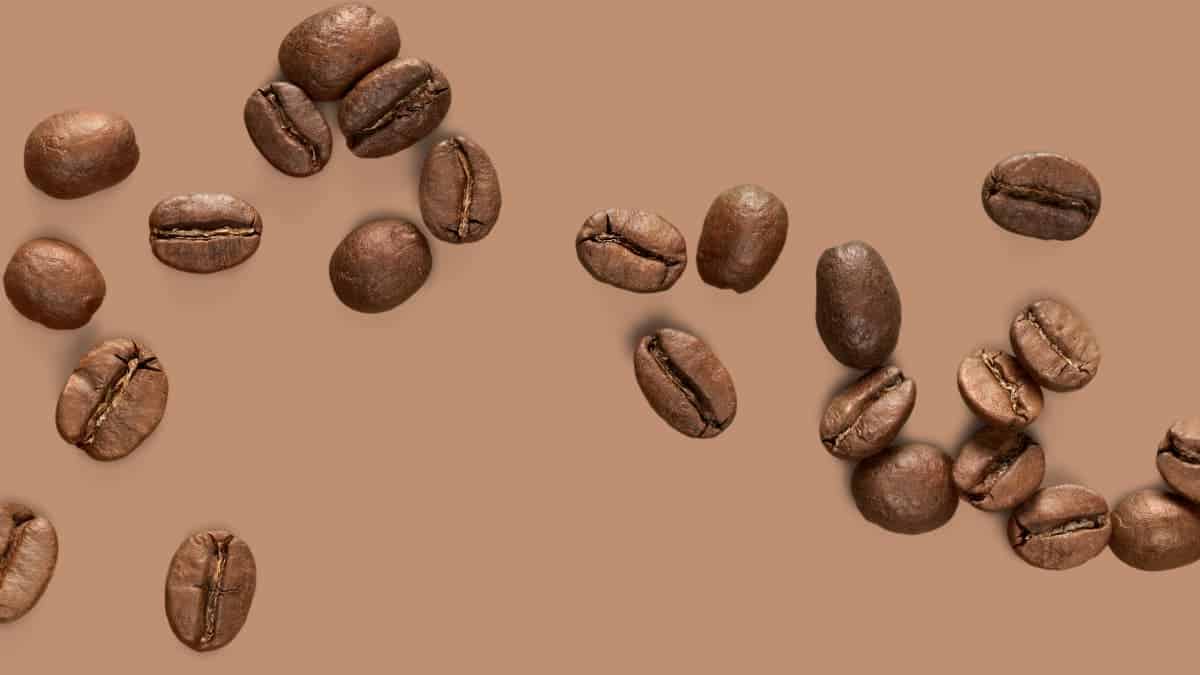
Are Coffee Beans Edible Or Not?
Yes, coffee beans are edible, roasted or raw, but it’s best not to eat too many at once.
In fact, historical evidence suggests ancient Ethiopians (who were the first coffee lovers) were eating coffee beans by around 575 C.E.
That’s before they learned to brew liquid coffee!
Today, most bean chewers eat coffee beans that have been roasted and perhaps even covered in chocolate. They make a delicious, crunchy treat that’s perfect for a little boost in the morning. Or as a treat with your morning cup of coffee.
So coffee beans are certainly safe to eat. But you don’t want to overdo it.
Consuming caffeine has a lot of benefits, but it has some negative side effects, too. These side effects get worse as your intake increases.
Although many people can handle some caffeine from coffee every day, the FDA and CDC both recommend maxing out at 400 mg. (That’s about 3-4 cups of drip coffee.) However, you probably don’t want to consume that much daily.
It’s also worth noting that some people are more sensitive to caffeine. So you may need to limit your intake of caffeinated foods and drinks further or switch to decaf.
Can You Eat Green Coffee Beans?
Yes, you can eat green coffee beans as safely as you can chow down on roasted coffee beans.
There is nothing inherently dangerous about unroasted beans. (Although it is possible for bacteria or mold to grow on beans stored in unhygienic and/or damp conditions. Any food item can go bad, after all.)
However, you may not want to eat unroasted beans. Raw, or green, beans can taste woody, bitter, acidic, and even sour, unlike roasted coffee beans which tend to taste nutty and pleasant.
It can also be physically hard to eat raw coffee beans since they tend to be pretty hard. Roasted beans soften during the roasting process and are easier to crunch.
If you actually like eating unroasted beans you can enjoy the health benefits like added fiber, antioxidants like chlorogenic acid, as well as the energy boost.
Of course, the downside is a slightly higher risk of heartburn. Lighter (less roasted) coffees tend to be more acidic, and raw/green coffee is as light as it gets.
Digestive issues from an upset stomach are also a potential problem, especially if you have a weak stomach. The acidity and caffeine in coffee can irritate sensitive digestive systems.
Still, there are no safety concerns when consuming green coffee beans. While you may not enjoy eating raw beans, the vast majority of people can do so with no problem. Unless you have an easily upset stomach or a sensitivity to caffeine, there’s nothing to worry about.
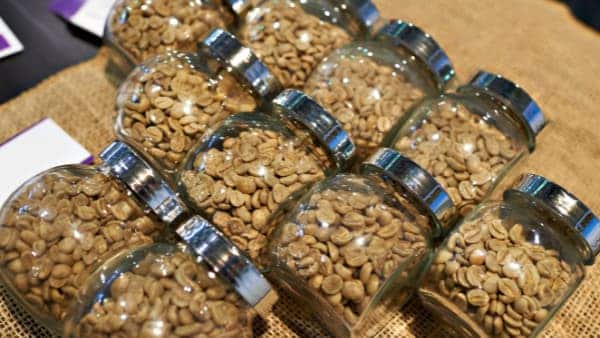
Can You Eat Espresso Beans?
If you can eat raw or roasted coffee beans, you can certainly eat espresso beans.
Espresso beans are just coffee beans that have been roasted in a way that’s ideal for brewing espresso.
They’re usually a dark roast that has been roasted for a long time. This helps reduce the acidity and increase the solubility of the coffee bean. Both of these things are helpful in the espresso brewing process.
Since espresso coffee beans are just dark roasted beans, you can certainly eat them.
Most espresso roasts are mostly or completely composed of Arabica coffee beans. Compared to Robusta coffee beans, Arabica beans are considered smoother and sweeter with notes of chocolate.
So you may like eating espresso coffee beans more. Opting for espresso roasts makes eating plain coffee beans more enjoyable.
Roasted Coffee Beans Flavor
On average, roasted coffee beans taste nutty, woody, and even a little like caramel.
Although soft enough to chew, they are hard and get a little gritty as you munch. Think of the texture of ground coffee; remember, these are the same beans you grind down to brew coffee.
(In fact you can eat coffee grounds if you enjoy the texture and flavor and don’t want to gnaw on beans! Some people love to eat coffee grounds that are espresso-fine, like a smooth powdery caffeine kick.)
Just like roasts have distinct flavors, different beans will offer their own notes.
As we established above, Arabica — and therefore most espresso roasts — can be almost chocolatey sweet and smooth. Other dark roast coffee beans will probably taste more bitter, smooth and even earthy or smokey. Light roast coffee beans can be woody, fruity, and acidic or sour in flavor.
Growing regions, the type of processing the coffee beans undergo before roasting, and the roasting process itself can all affect a coffee’s flavor — whether you’re eating the beans or drinking a cup of coffee.
Coffee beans that have been roasted longer (dark roasts) will be less acidic, more bitter, and more likely to have smoother notes. Although they can still be sweet.
Medium roasts tend to be nutty; some will lean fruity and others to the nutty end of the spectrum. Light roasts tend to be sharper, fruitier, and acidic.
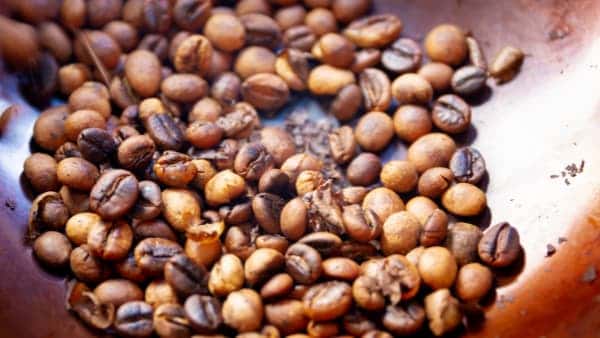
How Many Coffee Beans Can You Eat?
Even though eating coffee beans is perfectly safe and even enjoyable, there is an upward limit.
So how many coffee beans can you reasonably eat?
As an absolute limit, you shouldn’t consume more than 400 mg of caffeine. If your coffee beans are Arabica and contain the average 12 mg each, that’s a maximum of about 33 coffee beans each day.
But if you’re considering eating coffee beans, you almost certainly drink coffee. And you probably do it every day, which means something’s got to give.
Most adults get in 110-260 mg daily, from coffee and other sources (think soda, tea, chocolate, etc.). So the real limit on caffeine from coffee beans is about 150-290 mg.
Depending on how much caffeine you consume most days and how sensitive you are to it, it’s probably best to eat no more than 5-25 coffee beans in a day.
And remember, although each coffee bean isn’t high in caffeine, it does add up quickly. Eight coffee beans means about 96 mg; that’s a cup of coffee’s worth in less than a handful.
Think of eating coffee beans as a small treat, something you can enjoy safely, but just in small portions.
Benefits Of Eating Coffee Beans
Eating coffee beans is not only safe, it comes with the same potential health benefits that comes with drinking coffee.
Boosts Energy
You don’t need to brew coffee to enjoy the caffeine content. In fact, chomping on coffee beans is the best way to ensure you get the full caffeine intake from each bean.
It’s hard to extract 100% of the caffeine content from beans when you brew coffee (although you can extract the vast majority). But when you eat whole coffee beans you get the fullest caffeine boost possible.
Caffeine, as you probably already know, can be a great way to boost your energy levels, especially when you consume caffeine regularly. (Negative side effects can get worse if you keep consuming it, too. Watch your intake carefully.)
Caffeine actually regulates different neurotransmitters in the brain, which according to a 2020 study causes multiple neurobehavioral effects, including increased alertness.
Most coffee beans contain about 12 mg of caffeine, each, though that amount can vary by the type of bean. Robusta coffee beans have about twice as much (22 mg) as Arabica beans (12 mg).
Since Arabica beans are most popular, any coffee beans you eat will most likely have 12 mg, though.
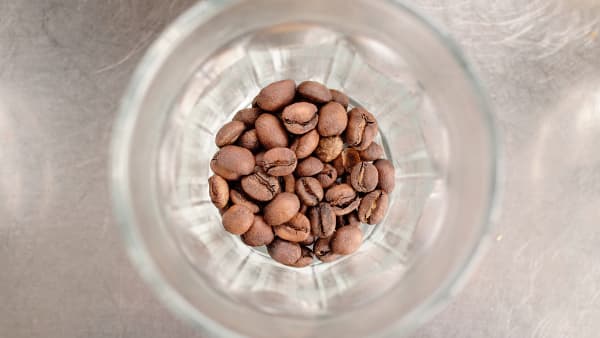
Reduced Risk Of Type 2 Diabetes
Believe it or not, coffee consumption is associated with lowered risk of developing type 2 diabetes.
Although it can be managed, type 2 diabetes is a serious health condition in which the body basically can’t process sugar properly. It makes excess sugar intake unsafe and can cause several other serious health issues.
In this recent study, risk of developing type 2 diabetes decreased by about 6% for each extra cup consumed daily. (Though please don’t take that as an excuse to drink coffee all day!) This may be because of the anti-oxidative and anti-inflammatory effects of consuming coffee.
While there’s certainly no guarantee you’ll successfully stave off type 2 diabetes if you eat coffee beans or drink the brew, evidence still suggests your coffee habit could be doing you a favor.
Supports Brain Function
Ingesting caffeine does more than give you a nice boost of energy. It might also be staving off something more serious, like Parkinson’s Disease, a brain disorder that affects muscle control.
A 2020 study found that coffee and caffeine consumption were associated with lower risk of developing Parkinson’s and a slower progression of the disease in those who had it. This is probably because of the neuroprotective effect of caffeine on key receptors in the brain.
The study also notes that people with Parkinson’s generally consume caffeinated foods and drinks less often.
Other studies have found long-term coffee consumption prevents cognitive decline and reduces the risk of developing other diseases like Alzheimer’s or a stroke.
So eating coffee beans might just help your brain stave off some serious problems.
Promotes Weight Management
Some claim coffee can help you lose weight. Coffee beans are certainly not diet pills, but eating coffee beans (or drinking brewed coffee), has been associated with helping people manage their weight.
According to a recent scientific paper on the “anti-obesity and health-promoting effects” of coffee and tea, both help prevent and “treat” obesity.
With the caffeine coffee beans contain, eating whole beans or drinking java can actually reduce fat storage by suppressing adipocytes, which are fat-storing cells in our connective tissue.
Thanks to the makeup of the coffee plant, consuming coffee also supports gut microbia, which can help your body digest what you eat better.
So if you eat coffee beans, it may help your digestive system do its thing while suppressing fat storage in the body, helping you keep your weight where you want it.
Side Effects Of Eating Coffee
Whether you eat coffee beans or drink the bean juice, it can be a surprisingly beneficial treat.
But too much coffee = too much caffeine. And too much caffeine causes some problems.
Luckily, you can skip most of the negative side effects of eating coffee beans (or ingesting too much caffeine in any form), by switching to decaf!
Sure, you’ll lose the caffeine boost. But decaf beans have all the deliciousness of their caffeinated cousins, without the jittery, addictive side effects.
And, although research is more limited, evidence so far suggests that many of these health benefits are true of decaf coffee, too. Eating decaf beans is not only a tasty treat free from the side effects of being over-caffeinated, it might also have serious advantages over other snacks.
Here’s why you’ll want to be careful to eat coffee beans in moderation, or switch to decaf.
Anxiety
By now, you’ve probably heard someone tell you they can’t have coffee because of how anxious it makes them feel. There’s something to that.
If you’ve ever taken one trip too many to the company coffee maker, you’re probably familiar with the shakiness (literal or not), the racing heartbeat, and that almost itchy feeling that comes with anxiety.
Ingesting caffeine from coffee causes side effects like this. And a 2015 study found symptoms like changes in heart rate and breathing in those who drank caffeine, especially as caffeine consumption increased.
Those in the study who were already sensitive to anxiety had stronger effects even when they didn’t know they would be ingesting caffeine. That suggests their reactions may not just be in their heads.
It’s a good idea to respect your limit for caffeine when it comes to anxiety. If you’re sensitive, ease up or switch to decaf. Even if you think you have a high tolerance, don’t discount the caffeine in coffee beans. A little adds up fast when it comes to caffeine.
Insomnia
The same caffeine that wakes you up when eating coffee beans is the same caffeine that won’t be doing your sleep schedule any favors.
A 2016 Australian study confirmed what many coffee lovers already knew: more caffeine, means less sleep.
It’s a two-way street. Those who drink more coffee, tend to sleep less. Those who don’t sleep very long tend to consume more caffeine.
Interestingly, the study found that was the only major issue reported: less time sleeping, rather than other issues, like poor quality sleep.
So while you may experience some insomnia eating coffee beans too soon before bed, it’s less likely that a coffee bean habit will ruin what sleep you will get.
Addiction
We coffee lovers sometimes joke about our coffee or caffeine addiction, but the truth is it’s no joke.
Caffeine is an addictive substance, so it’s possible to get addicted to coffee — or at least, the effects it gives you thanks to its caffeine content.
An interesting study from the early 2000s found evidence for that in the amount of attention caffeine consumers paid to words related to caffeine (such as ‘coffee’). Those who consumed the most caffeine regularly showed a “significant attentional bias” toward those words.
That is, they were pretty alert when caffeine-related words came up.
That’s significant, because the results were consistent with our understanding of drug addiction and studies of addiction to other substances. The study indicated that the attention wasn’t just out of general interest, but actually could have been a sign of addiction, whether mild or not.
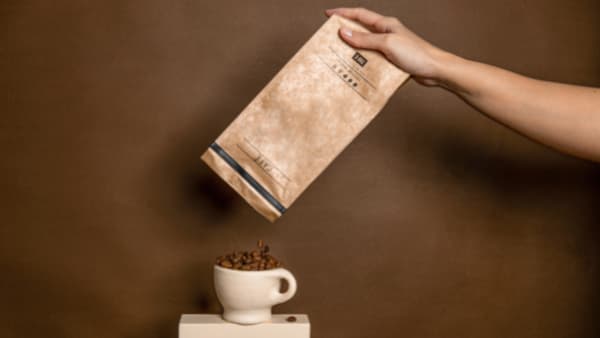
Try Chocolate Covered Beans First
Interested in eating roasted coffee beans, but not sure if you’ll like the texture or flavor? Try chocolate covered coffee beans first.
They’re easy to find and taste great. And who doesn’t like chocolate?
As you might expect, there are chocolate covered coffee beans wrapped in both milk chocolate and dark chocolate. There are many ways to enjoy a sweet coffee bean or two when you need a little perk.
Since they’re sweet and give you a little burst of energy, chocolate covered coffee beans make a luxurious midday treat. It’s easy to do portion control and you’re still satisfied with just a few coffee beans.
Eating coffee beans covered in chocolate is like eating a truffle or chocolate turtle; you expect to enjoy a small piece of decadence.
Plus, a few chocolate covered coffee beans perk you up without as much caffeine as you usually get drinking coffee. That means no hard crash at 5 p.m., jitters, or staying awake unless you really overdo it.
You can eat coffee beans and enjoy the perks even when watching your coffee consumption as long as you’re careful.
If you’re interested, try chocolate covered coffee beans made with espresso roasted beans and/or Arabica beans. Their natural smooth and deep flavor complement the chocolate coating.
The chocolate covered coffee beans below from Trader Joe’s are a great choice.
There are also some delicious recipes for making your own. Imagine your favorite coffee beans covered in chocolate — dark chocolate, of course.
Wrapping Up: Can You Eat Coffee Beans?
So can you eat coffee beans?
The short answer is yes. It’s perfectly safe to eat whole coffee beans raw or roasted. Eating coffee beans offers many of the same benefits as drinking coffee, including higher energy, better brain function, and even a reduced risk of type 2 diabetes according to science.
But just like coffee, you can overdo the coffee bean consumption, especially where the caffeine content is concerned.

